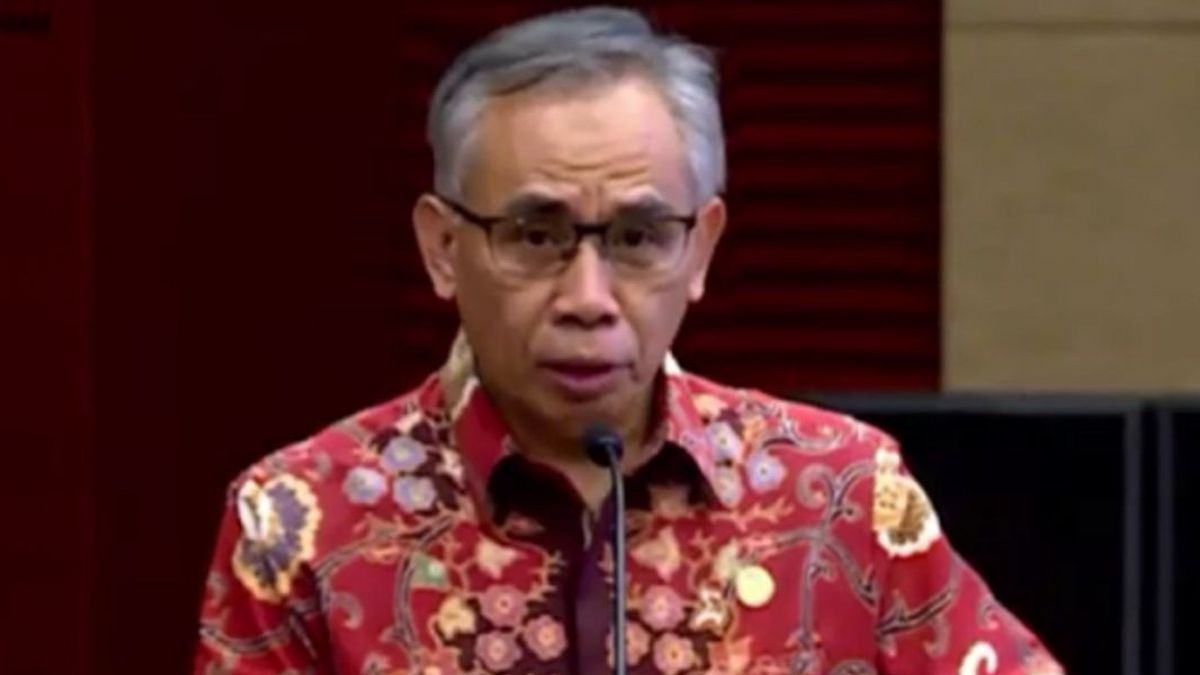JAKARTA - The Financial Services Authority (OJK) said that the financial services sector was well maintained amidst economic pressure due to the COVID-19 pandemic. This was conveyed by the Chairman of the OJK Board of Commissioners Wimboh Santoso at the Annual Meeting of the Financial Services Industry (PTIJK) which was held virtually in Jakarta, Friday, January 15.
According to Wimboh, the pandemic brought severe shocks to the global economy and financial markets. In order to overcome this impact, the authorities issued various forward looking and counter-cyclical policies aimed at reducing market volatility, providing room for the real sector to survive, and maintaining overall financial system stability.
"These policies are very effective so that the domestic economy continues to improve gradually. In addition, financial system stability is still well maintained," he said, Friday, January 15.
For example, in the capital market industry, volatility control policies have increased investor confidence. This is reflected in the improvement in the JCI to above 6,000 in early 2021 after previously slumping to its lowest position at 3,937.6 on March 24, 2020.
"The strengthening of the JCI cannot be separated from the increase in the number of retail investors in the capital market, which reached 3.88 million investors," he said.
Meanwhile, raising funds through public offerings reached Rp. 118.7 trillion with 53 new issuers, which is the highest figure in ASEAN.
Then in the banking industry, the slowdown in activity in the real sector and the not yet fully operationalization of large corporations has made banking intermediation performance under pressure and contracted minus 2.41 percent in 2020.
However, state-owned bank credit still grew slightly 0.63 percent and BPD grew 5.22 percent, and Islamic banks grew 9.50 percent.
As for the MSME sector, various stimulus policies had an impact on stable credit growth. Placement of government funds in banks amounting to Rp.66.7 trillion has been disbursed amounting to Rp.323.8 trillion or provides a leverage of 4.8 times.
Then, the bank credit restructuring policy that has been extended, until the end of December, has reached IDR971 trillion (18 percent of total credit) from around 7.6 million SME and corporate debtors.
This policy resulted in a manageable banking risk profile with a gross NPL ratio at the level of 3.06 percent (2019: 2.53 percent) or net 0.98 percent (2019: 1.19 percent) and was supported by quite high capital, namely CAR. 23.78 percent (2019: 23.31 percent).
Meanwhile, the intermediation performance of the non-bank financial industry (IKNB) is still under pressure due to the COVID-19 pandemic. Commercial insurance premiums contracted by minus 7.34 percent. Financing company receivables contracted by minus 17.1 percent, due to the lack of recovery in various economic sectors.
However, the risk profile of the NBFI is still maintained at a manageable level, as evidenced by the Risk-Based Capital (RBC) of the life insurance industry and general insurance at 540 percent and 354 percent, respectively. This amount is far above the threshold limit of 120 percent.
The English, Chinese, Japanese, Arabic, and French versions are automatically generated by the AI. So there may still be inaccuracies in translating, please always see Indonesian as our main language. (system supported by DigitalSiber.id)













